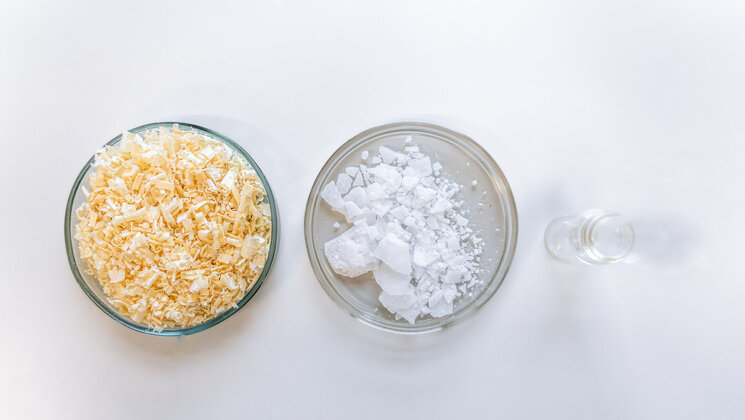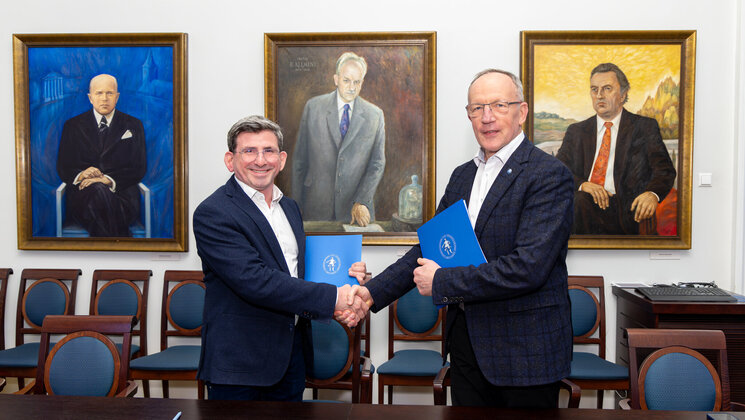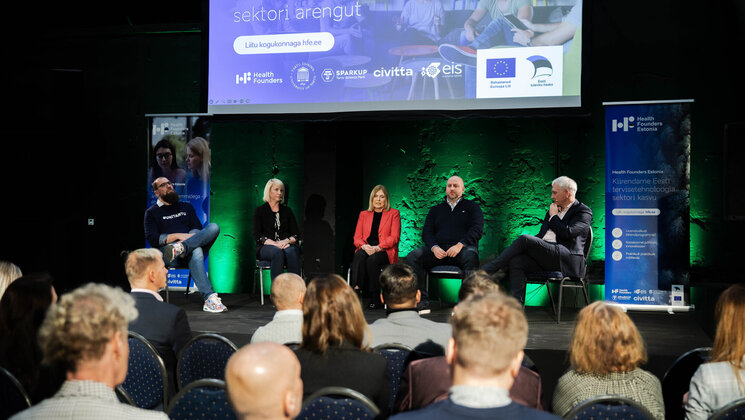-
Faculty of Arts and HumanitiesDean's Office, Faculty of Arts and HumanitiesJakobi 2, r 116-121 51005 Tartu linn, Tartu linn, Tartumaa EST0Institute of History and ArchaeologyJakobi 2 51005 Tartu linn, Tartu linn, Tartumaa EST0Institute of Estonian and General LinguisticsJakobi 2, IV korrus 51005 Tartu linn, Tartu linn, Tartumaa EST0Institute of Philosophy and SemioticsJakobi 2, III korrus, ruumid 302-337 51005 Tartu linn, Tartu linn, Tartumaa EST0Institute of Cultural ResearchÜlikooli 16 51003 Tartu linn, Tartu linn, Tartumaa EST0Institute of Foreign Languages and CulturesLossi 3 51003 Tartu linn, Tartu linn, Tartumaa EST0School of Theology and Religious StudiesÜlikooli 18 50090 Tartu linn, Tartu linn, Tartumaa EST0Viljandi Culture AcademyPosti 1 71004 Viljandi linn, Viljandimaa EST0Professors emeriti, Faculty of Arts and Humanities0Associate Professors emeriti, Faculty of Arts and Humanities0Faculty of Social SciencesDean's Office, Faculty of Social SciencesLossi 36 51003 Tartu linn, Tartu linn, Tartumaa EST0Institute of EducationJakobi 5 51005 Tartu linn, Tartu linn, Tartumaa EST0Johan Skytte Institute of Political StudiesLossi 36, ruum 301 51003 Tartu linn, Tartu linn, Tartumaa EST0School of Economics and Business AdministrationNarva mnt 18 51009 Tartu linn, Tartu linn, Tartumaa EST0Institute of PsychologyNäituse 2 50409 Tartu linn, Tartu linn, Tartumaa EST0School of LawNäituse 20 - 324 50409 Tartu linn, Tartu linn, Tartumaa EST0Institute of Social StudiesLossi 36 51003 Tartu linn, Tartu linn, Tartumaa EST0Narva CollegeRaekoja plats 2 20307 Narva linn, Ida-Virumaa EST0Pärnu CollegeRingi 35 80012 Pärnu linn, Pärnu linn, Pärnumaa EST0Professors emeriti, Faculty of Social Sciences0Associate Professors emeriti, Faculty of Social Sciences0Faculty of MedicineDean's Office, Faculty of MedicineRavila 19 50411 Tartu linn, Tartu linn, Tartumaa ESTInstitute of Biomedicine and Translational MedicineBiomeedikum, Ravila 19 50411 Tartu linn, Tartu linn, Tartumaa ESTInstitute of PharmacyNooruse 1 50411 Tartu linn, Tartu linn, Tartumaa ESTInstitute of DentistryL. Puusepa 1a 50406 Tartu linn, Tartu linn, Tartumaa ESTInstitute of Clinical MedicineL. Puusepa 8 50406 Tartu linn, Tartu linn, Tartumaa ESTInstitute of Family Medicine and Public HealthRavila 19 50411 Tartu linn, Tartu linn, Tartumaa ESTInstitute of Sport Sciences and PhysiotherapyUjula 4 51008 Tartu linn, Tartu linn, Tartumaa ESTProfessors emeriti, Faculty of Medicine0Associate Professors emeriti, Faculty of Medicine0Faculty of Science and TechnologyDean's Office, Faculty of Science and TechnologyVanemuise 46 - 208 51003 Tartu linn, Tartu linn, Tartumaa ESTInstitute of Computer ScienceNarva mnt 18 51009 Tartu linn, Tartu linn, Tartumaa ESTInstitute of GenomicsRiia 23b/2 51010 Tartu linn, Tartu linn, Tartumaa ESTEstonian Marine Institute0Institute of PhysicsInstitute of ChemistryRavila 14a 50411 Tartu linn, Tartu linn, Tartumaa EST0Institute of Mathematics and StatisticsNarva mnt 18 51009 Tartu linn, Tartu linn, Tartumaa EST0Institute of Molecular and Cell BiologyRiia 23, 23b - 134 51010 Tartu linn, Tartu linn, Tartumaa ESTTartu ObservatoryObservatooriumi 1 61602 Tõravere alevik, Nõo vald, Tartumaa EST0Institute of TechnologyNooruse 1 50411 Tartu linn, Tartu linn, Tartumaa ESTInstitute of Ecology and Earth SciencesJ. Liivi tn 2 50409 Tartu linn, Tartu linn, Tartumaa ESTProfessors emeriti, Faculty of Science and Technology0Associate Professors emeriti, Faculty of Science and Technology0Institute of BioengineeringArea of Academic SecretaryHuman Resources OfficeUppsala 6, Lossi 36 51003 Tartu linn, Tartu linn, Tartumaa EST0Area of Head of FinanceFinance Office0Area of Director of AdministrationInformation Technology Office0Administrative OfficeÜlikooli 17 (III korrus) 51005 Tartu linn, Tartu linn, Tartumaa EST0Estates Office0Marketing and Communication OfficeÜlikooli 18, ruumid 102, 104, 209, 210 50090 Tartu linn, Tartu linn, Tartumaa EST0Area of Vice Rector for DevelopmentCentre for Entrepreneurship and InnovationNarva mnt 18 51009 Tartu linn, Tartu linn, Tartumaa EST0University of Tartu Natural History Museum and Botanical GardenVanemuise 46 51003 Tartu linn, Tartu linn, Tartumaa EST0International Cooperation and Protocol Office0University of Tartu MuseumLossi 25 51003 Tartu linn, Tartu linn, Tartumaa EST0Area of RectorRector's Strategy OfficeInternal Audit OfficeArea of Vice Rector for Academic AffairsOffice of Academic Affairs0University of Tartu Youth AcademyUppsala 10 51003 Tartu linn, Tartu linn, Tartumaa EST0Student Union OfficeÜlikooli 18b 51005 Tartu linn, Tartu linn, Tartumaa EST0Centre for Learning and TeachingArea of Vice Rector for ResearchUniversity of Tartu LibraryW. Struve 1 50091 Tartu linn, Tartu linn, Tartumaa EST0Grant Office
Centre for Entrepreneurship and Innovation looking back on 2023

How was 2023 for the University of Tartu's spin-offs? How did the teams that received the experimental development grant and participated in the pre-incubation programme do? The first days of January are a good time to look back on what the Centre for Entrepreneurship and Innovation was up to last year.
Experimental development grant – a gateway to the world of entrepreneurship
For the fifth year running, academic staff at the University of Tartu were able to apply for the experimental development grant, which aims to support researchers in implementing the results of their research. To a researcher at the University of Tartu, receiving the grant is often the first step on the journey to setting up a research-intensive business. In 2023, nine projects were supported with 300,000 euros in total. The research results of the 2022 grantees were also announced.
While teams are generally expected to establish a research-intensive company after receiving the grant, the first goal is to raise the technology readiness level (TRL). The research teams that received the grant in 2022 were successful in this respect: two teams went up one level, five teams climbed two levels, four teams ascended three levels, three teams moved up four levels and one team even seven levels.
Since 2019, 56 projects have received the experimental development grant totalling 1.8 million euros.
Pre-incubation programme From Science to Business
Many of the teams that have received the experimental development grant have gone on to implement their entrepreneurial plans as part of the University of Tartu's pre-incubation programme From Science to Business.
A record 13 teams participated in the spring and autumn 2023 programme. Over the course of 10 weeks, through weekly mentoring sessions, they moved towards the establishment of a research-intensive business. At the end of the year, the Centre for Entrepreneurship and Innovation was delighted to learn that one of the teams in the spring programme – EsaDres, a developer of wound care products – was selected as one of the top 40 start-ups to compete for prizes worth nearly half a million euros at the Startup Day in January. Among the university's start-ups, GaltTec and Vectiopep were also selected in the top 40.
2023 was a successful year for the University of Tartu's spin-offs
It is clear that 2023 was an exceptionally successful year for many of the University of Tartu's spin-offs. For example, the biotech company Icosagen Cell Factory was named both Estonian Company of the Year and Innovator of the Year.
Fundraising also proved a success. UP Catalyst, a technology developer producing graphite from CO2 emissions, raised 4 million euros to build an industrial test reactor. This will help reduce Europe's dependence on Chinese carbon materials and make UP Catalyst the world's largest producer of green graphite.
Gearbox Biosciences, on the other hand, raised nearly half a million euros to develop industrial biotechnology that enables producing proteins without the use of antibiotics. In doing so, the company helps reduce both the use of antibiotics outside medicine and the spread of bacteria that have become resistant to them.
Fuel cell developer GaltTec is the only Estonian start-up to be selected in NATO's accelerator programme DIANA, which includes access to NATO test and development centres, in addition to providing financial support and reliability.
In spite of the economic situation at the end of the year, the University of Tartu's spin-offs have been successful and the researchers' interest in entrepreneurship has not waned. We hope that the number of spin-offs and business-minded researchers at the university will increase in 2024.
The Centre for Entrepreneurship and Innovation wishes everyone a happy new year full of entrepreneurial spirit!
Read more similar news






